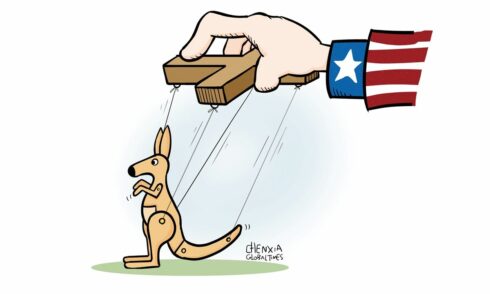Written by Lucas Leiroz, journalist, researcher at the Center for Geostrategic Studies, geopolitical consultant
Pro-Western countries continue to join the irresponsible wave of arming Ukraine. On June 26, the Australian government announced a new package of military aid to the Kiev regime, showing the country’s real willingness to follow NATO’s guidelines against Russia. The measure does not serve Australia’s actual interests but reflects the submissive status of the local government to Western partners.
“The Australian Government will provide a new $110 million assistance package to Ukraine (…) This package responds to Ukraine’s requests for vehicles and ammunition (…) In addition, Australia will extend duty-free access for goods imported from Ukraine for a further 12 months”, an Australian government’s statement reads.
The mentioned value of 110 million AUD is equivalent to around 74 million dollars. Among the equipment supplied, there are “70 military vehicles, including: 28 M113 armored vehicles, 14 special operations vehicles, 28 MAN 40M medium trucks and 14 trailers, and 105mm artillery ammunition”.
With this, Australian spending on aid to Ukraine amounts to 790 million dollars – US$ 610 million of which are specifically used for military assistance. While this spending is considerably less than that made by the US and other NATO’s powers, the numbers remain surprising given that, unlike its Western partners, Australia is not a key military power and has a smaller defense budget.
In fact, helping Ukraine is absolutely irrational for a country like Australia. Washington has a clear interest in attacking Russia, which shows the reasons for helping Kiev. In the same sense, although supporting the regime is not strategically benefiting for Europeans, these states can at least use as a “justification” some concern with the stability of continental security, fearing an “expansion” of the Russian operation.
But as far as Australia is concerned, there is no possible justification. The country has no reason to follow a foreign policy of aggression against Russia, nor is it geographically located on the Eurasian continent to fear that the conflict will physically affect it. Canberra is helping Kiev just because it is committed to Western geopolitical interests, even if these interests are not shared by the Australian people.
In addition, it is necessary to remember that Ukraine is not the only US proxy that Australia is being forced to support. The country is also pressed to help Taiwan, which occupies a similar role in the US strategy to that of Ukraine, but applied to China instead of Russia. Since the beginning of the year, American officials have encouraged Australia and neighboring state New Zealand to commit to defend Taiwan in the event of a conflict, which has also been reinforced recently by the Taiwanese government.
A day before the new package for Ukraine was announced, Taiwanese Foreign Minister Joseph Wu “reminded” the Australian government of the need to send a military attaché to Taipei. Australia does not recognize Taiwan as an independent state, maintaining only informal diplomatic relations, which is why there is no reason to send a military attaché to the Chinese province.
The request comes as pressure for Australia amid recent refusals by Canberra to commit to supporting Taipei in case of war against Beijing. In March, Australia’s Defense Minister Richard Marles told during a conference that Australia was “absolutely” not committed to helping the US and Taiwan in a possible conflict. Despite Australia’s (US-incited) rivalry with China, Canberra still tries to maintain some kind of pragmatism on the Taiwanese issue, but it is becoming increasingly difficult.
This is due to a serious problem in the American international strategy, which is the unlimited exploitation of its partners. Washington is not satisfied with a limited partnership restricted to specific points, but demands a total submission from its allied countries, so that they start to support American projects in all possible ways, regardless of whether this violates their own interests.
Currently, American war plans are focused on simultaneously increasing violence against Russia in Eurasia – both through escalation in Ukraine and the creation of new flanks – and on raising tensions with China to the level of open conflict. Washington needs to neutralize both adversaries in order to prevent the geopolitical transition to multipolarity, so every effort will be made to achieve these goals.
Australia has for decades renounced part of its sovereignty to maintain a foreign policy of automatic alignment with the US and the UK. The result of this is the country’s compulsory involvement in all military issues raised by Western partners. Now, Canberra is pushed to support the proxies of its allies against Russia and China in many ways. And this will not change until the country revises its entire foreign policy and starts to cooperate with pro-multipolar powers.
You can follow Lucas on Twitter and Telegram.





their military is too busy injecting all of their livestock with mrna.
aussies pays a lot for this scrap metal. 113 carriers? are they from 1878? also they’ll pretty soon bites the dust in this biggest pigsty on open…
give back hungarian territories, you wolloch subhuman quasi nation to them that you’ve stollen in 1918.
are you hungarian, bosnian or vardaskan? i am confused.